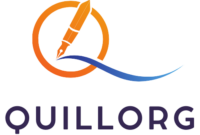Diving into the world of writing can be both exciting and daunting for beginners. Writing workshops offer a welcoming space where novice writers can hone their skills, gain valuable feedback, and connect with like-minded individuals. These workshops are designed to nurture creativity and provide the tools needed to transform ideas into compelling narratives. For those just starting their writing journey, workshops can be a game-changer.
They provide structured guidance, encouraging participants to explore different styles and genres while building confidence in their unique voice. With experienced instructors leading the way, beginners can learn the fundamentals of storytelling, character development, and effective dialogue. Whether aspiring to write fiction, non-fiction, or poetry, beginners will find that writing workshops offer a supportive environment to experiment and grow. By engaging in collaborative exercises and receiving constructive critiques, participants can refine their craft and develop a deeper understanding of the writing process, setting a strong foundation for future endeavors.
Writing Workshops For Beginners

Writing workshops offer essential platforms for beginner writers seeking to hone their craft. Through a blend of instruction and interaction, participants engage in activities that advance both skills and creativity. Workshops play a crucial role in enhancing writing skills for beginners.
They provide structured activities that focus on key techniques like plotting, scene creation, and pacing. Instructors guide participants through exercises that improve grammar, vocabulary, and structure. For example, free writing tasks encourage clarity and precision in expression while technical workshops focus on syntax and style refinement. Creative exercises expand writers’ imagination and idea generation capabilities. Writing prompts often serve as catalysts for producing spontaneous and original content, encouraging unique storytelling. In group settings, sharing diverse insights enables participants to explore different perspectives, thereby fostering an environment where creativity flourishes.
Over time, this exposure broadens their creative horizons. Workshops also facilitate valuable networking opportunities. Participants meet fellow writers, industry experts, and potential mentors, creating connections that support their writing aspirations. Engaging in peer discussions and group critiques enables writers to exchange feedback, share resources, and build lasting professional relationships. Such networks often lead to collaborations and collective projects, enriching the writers’ journey.
Types Of Writing Workshops

Writing workshops for beginners offer diverse formats, each catering to specific needs and preferences. Participants can choose from a variety of options to find the best fit for their writing journey. Online workshops provide flexibility and accessibility. Participants engage with instructors and peers through virtual platforms, making it convenient for those with busy schedules.
These workshops often feature video lectures, discussion forums, and real-time feedback sessions. Examples include webinars and self-paced courses, offering content on-demand. In-person workshops offer immersive experiences and immediate interaction. Participants benefit from face-to-face feedback and networking opportunities in a collaborative environment. These workshops often occur in community centers, universities, or writing retreats. Notable features include hands-on activities and personalized mentorship. Genre-specific workshops focus on targeted writing styles. Writers explore genres such as fiction, nonfiction, poetry, or scriptwriting. These workshops help participants develop genre-specific skills and knowledge.
What To Expect In A Writing Workshop

Writing workshops for beginners offer a unique blend of learning and creativity. Participants can expect a supportive environment where they can explore their writing potential under the guidance of experienced instructors. These workshops not only focus on honing technical skills but also encourage creative expression through various exercises and prompts. Whether attending online or in-person, beginners will find opportunities to connect with fellow writers and industry professionals.
Each workshop format offers distinct benefits, allowing individuals to tailor their learning experience to their specific needs and interests. Ultimately, writing workshops serve as a valuable stepping stone for anyone looking to embark on a fulfilling writing journey. For example, free writing tasks encourage clarity and precision in expression while technical workshops focus on syntax and style refinement. Creative exercises expand writers’ imagination and idea generation capabilities. Writing prompts often serve as catalysts for producing spontaneous and original content, encouraging unique storytelling.
In group settings, sharing diverse insights enables participants to explore different perspectives, thereby fostering an environment where creativity flourishes. Over time, this exposure broadens their creative horizons. Workshops also facilitate valuable networking opportunities.



